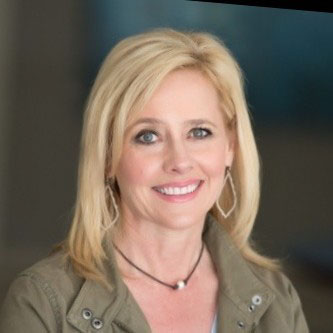By Matthew Berger, Director of Communications
The hunt for top talent remains tough, and experts say employers and job seekers need to stay flexible.
Doug Hall, Financial Additions President, and Deborah Bell, Financial Additions Vice President, recently discussed the results of their company’s quarterly job market survey. Financial Additions, founded in 1999, is a top staffing agency for the accounting and financial sectors. More than 200 companies participated in the recent survey.

Below are five takeaways from their Q3 2022 job market survey:
- Get creative.
“It’s simple supply and demand,” Hall said. “The number of kids going to college to get degrees in accounting and finance is declining.”
To combat this, Hall and Bell said companies need to think creatively during their hiring process. This includes “training up” candidates that might lack experience or certain credentials. Hall also said employers can’t assume today’s candidates know how to interview like their pre-pandemic counterparts.
“Leaders need to have realistic expectations,” Hall said. “Maybe they aim for the top 5 needs versus the whole list.”
- Job seekers can’t have it all.
Those realistic expectations go for the people looking for jobs, too. Yes, it’s a job seeker’s market (more jobs available than people looking for them), but don’t be too selective. Meetings happen now in public workspaces, hotel conference rooms, or remotely from your living room, but work environment isn’t everything. Picking remote-only jobs could limit you.

- The hybrid schedule is here to stay.
Bringing employees back to the office remains a challenge. Some companies are trying to incentivize employees’ return with gas cards, paying for tolls, and free meals.
Most companies surveyed operate three days in the office and two at home or two days in the office and three days at home. Companies said they have difficulty training new employees remote, and current employees are still burning out at home with no clear boundaries.
Hall and Bell said employers need to be intentional about the time they’re in the office. This includes having meetings in person and keeping deep-thought time remote. Companies are also acclimating new hires to team culture with in-person training for up to 90 days before they work remotely.
- Remote work adds to an already competitive market.
With remote work becoming more of the norm, gone are the days employees are just competing with local talent. Hall said today’s employees can work for a Dallas-based company from homes outside Dallas and Texas.
“The job market in the Dallas Region was already competitive, and it becomes more dynamic every day,” Hall said. “Job seekers must remember this: every company needs the core function of accounting and finance, so that type of job is everywhere.”
To stand out among the crowd, Bell said candidates can earn additional certifications or degrees, like a Certified Public Accountant (CPA) or Master’s Business of Administration (MBA).
“Don’t limit yourself, and do what you can to make yourself stand out,” she said.
- COVID-19 forever changed hiring practices.
Before the pandemic, job hunters and hiring managers tried to match on educational level, work experience, and salary. Now job hunters are getting more specific with when and where they work.
As businesses struggle to find top talent, Hall and Bell said don’t forget to look internally to fill positions and move fast.
“Companies need to make hiring decisions much quicker,” Hall said. “Lower and mid-level talent can switch jobs in 10 days, so don’t waste time.”
If you would like to see the full survey, contact Financial Additions. Also visit the Dallas Regional Chamber and the DRC’s Say Yes to Dallas website for more resources to attract talent to the Dallas Region.